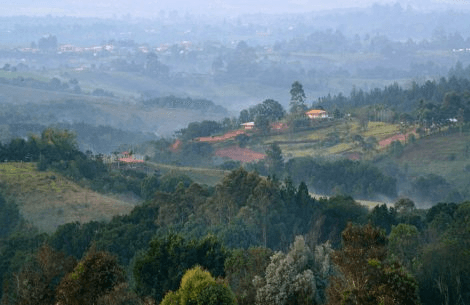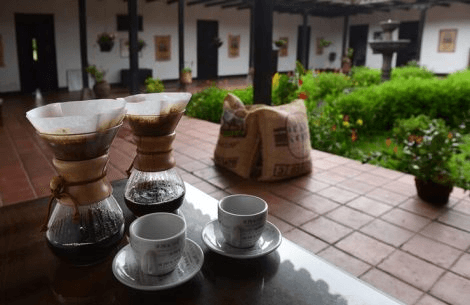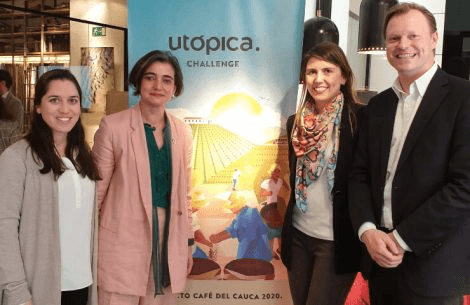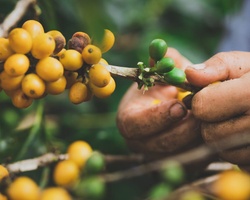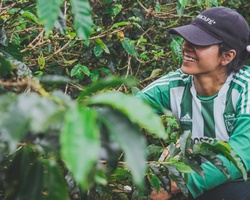- Home
- News And Events
- What’s Going On
- Ie Business School And Utópica Join Forces For Social Impact
IE Business School and Utópica Join Forces for Social Impact
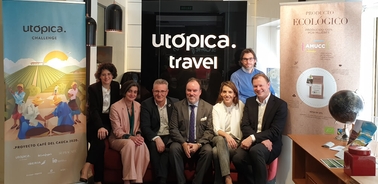
IE Business School and Utópica join forces to create the Utópica Challenge for social impact.
IE Business School and El Corte Ingles’ experience travel agency Utópica join forces to create the Utópica Challenge Project, where students create innovative business models that improve the standard of living of local communities.
The first edition, called 2020: Café del Cauca, works with Spanish premium coffee company Supracafe and challenges students to develop a strategic business and marketing plan that optimizes income for the women who grow the ecological coffee beans in Cauca, Colombia, the Association of Women Caficultoras of Cauca (AMUCC).
“This project fits into our vision perfectly: real-world experience and social impact,” said IE Business School Dean Martin Boehm. “Not only does it offer students experience where they benefit from applying what they learn in the classroom, but, more importantly, we are teaching entrepreneurs to be leaders in future society and understand the effects of the decisions they make.”
The initiative will select different projects each year.
“This is a unique educational, social impact and environmental project,” said Javier Urrutia, director of Utópica, the experience-focused travel agency. “Each year we will select different projects in different parts of the world. We are already studying options for the next few years.”
This year’s Utópica Challenge Project calls on a select group of 15 International MBA and Master in Management students to pitch innovative business models. The winning projects travel to Colombia to meet the women, understand the specifics to the region and co-create their idea with them.
The protagonists in the first year of the Utópica Challenge are indigenous women in the Cauca region of Colombia, the majority of whom are widows from the armed conflict in the area. They produce coffee in a purely artisanal way on small farms, with the sole intention of maintaining their families.
According to Supracafé General Manager Ricardo Oteros, who has cultivated coffee with the AMUCC for more than 20 years, the average yearly income for the women is €1,400. He said some 560, 000 families depend on coffee bean production in Colombia as a livelihood, and 30,000 of them are in the Cauca region and headed by women who are the family breadwinners.
“We are seeking a scalable model. This is a challenge for production, but also dignity and sustainability. A social project is something that you never abandon.”
Ricardo Oteros
The Utópica Challenge Project counts on the support of Iberia, ICEX and Procolombia, as well as El Corte Ingles and Utópica.
Professor María López-Escorial, an expert in developing business solutions to alleviate poverty, will lead the students in the challenge.
López-Escorial explained only .4% of the average $2.50 cup of coffee goes to the women working the coffee bean and that there are ways to increase revenue and also work towards sustainability and zero waste.
“Only 5% of the coffee biomass is actually used to make coffee. This leaves plenty of options for creating other business models that use the left over material to generate income for the women,” López-Escorial said. “Students will need to think outside the box and come up with viable business plans that truly make a difference.”
